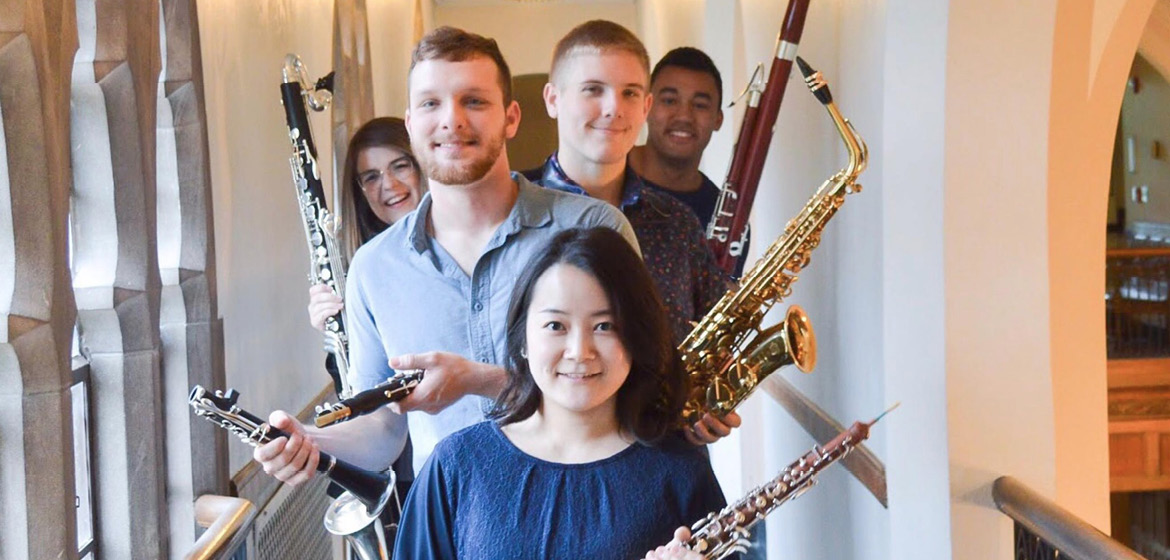College of Music Music Education Engagement Residency

The Education Engagement Residency Program in the College of Music allows chamber groups composed of graduate students to engage with students age K-3, observe classrooms, create lesson plans, and write grants.
In the 2019-2020 academic year, the Zenith Reed Quintet completed the program almost entirely as they would have in a “normal” year, helping instruct students at Sycamore Elementary School in Holt.
Until the spring, when the COVID-19 pandemic changed everything.
The quintet—comprised of Asako Furuoya, current DMA candidate, on oboe; Chris Revak on clarinet; Keaton Garrett on saxophone; Wes Cords on Bassoon; and Victoria Deutsch, current DMA candidate, on bass clarinet—had almost completed their residency when learning was abruptly moved online. The group was able to complete the required work for the residency, including their grant and lesson plans, but it still felt to them as if they had left something unfinished.
“We had some lesson plans that we were really excited about that we didn’t get to do with kids,” Deutsch said.
So, the five of them, all with diverse musical, educational, and cultural backgrounds, banded together to think of ways they could continue music education in a remote setting with the children at Sycamore in mind. They decided on creating a series of educational videos that they would put online for free, and without the certainty that anything would come from it they set out filming.
“They were all-in even when they didn’t know if there was going to be an outcome with the community partner,” said Christine Beamer, director of career services and music entrepreneurship at the College of Music.
The Grow with You Video Collection aims to help children learn music from the fundamentals up until they begin to audition for college-level bands. The Zenith Quintet has already recorded their first series on the elements of music, which is targeted at elementary-aged and beginner musicians like the ones they were able to teach at Sycamore.
The hope, however, is that these videos can have a wider impact, providing accessible and affordable music education for all. “I think this is going to be a really great resource for kids everywhere,” Deutsch said.
The interactive lessons are also accompanied with digital packages for instructors, who can download worksheets that accompany each video.
In the pandemic, the need for quality, accessible resources in arts education has been brought to light. “The pandemic has intensified issues of equity and access, particularly in technology,” Beamer said. “Arts education is really important in a pandemic because of the emotional value, social value, and cultural value of artistic experiences.”
In times of strife, the arts help unite us. The members of the Zenith Quintet have made music education their mission because of that belief.
“That’s how we cope with these things. That’s how we express what we’re feeling through difficult times and through good times,” Deutsch said.


